Ecocycle Your Christmas Trees and Trout Will Benefit.
That 2020 calendar belongs in a recycle bin and your Christmas tree belongs in a river. There’s not much to be done about what we all just went through but this year we’re starting off with a new hope. Since 2018, members of Rhode Island’s Trout Unlimited chapter have collected pine trees to stabilize riverbanks and provide shelter for fishes like brook trout. We’ve learned a lot about our effects on nature from filling in wetlands and straightening rivers but now, we can all help do something good: Ecocycle your Christmas trees for their Trees for Trout program.
Back in the day, swamps were a nuisance blocking paths to development. So we filled them in and built on top. Then we came to understand they were necessary sponges and filters, teeming with life and purposes critical to balancing our ecosystems and we started calling them wetlands. That same idea of needing to control nature is reflected in the way our ancestors often preferred straight, bland, edged rivers to fish for trout. They took away trees, rocks, corners, and bends. They called it river engineering: man’s efforts to change the flow or movement of a stream for our own benefit.
Early steam-powered shovels removed countless tons of earth. Suddenly those meandering rivers coursing through valuable farmland, the very ones which moved torrents of rainwater and snow melt, could be tamed. As is often the case, man either did not understand or neglected to care about repercussions for undoing what nature designed. River engineering can be building dikes or dams or tearing out the vegetative sinew of a small brook to more easily cast flies.
Bends, twists, turns, and curves create habitat. Alongside eddies and deep pools, trout rest and hunt under shadows of downed trees and branches, safe from avian predators and eager anglers. Open water without shading denies trout refuge from the heat. With no woody obstructions, water can flow too quickly, leading to increased river bed erosion and collapsing banks. Quick water also erases precious gravel where trout create redds for protecting eggs. All fishes but especially brookies, our only native char, deserve our attention and care. The law of unintended consequences can destroy a river.
Some rivers end at the sea where there is a natural mixing of life and materials. Freshwater streams support trout, bass, pickerel, perch, and the like, then pass the head of the tide to welcome white perch, shad and striped bass. Just above the Providence Place Mall, on the lovely Woonasquatucket River, fresh meets salt with bass on both sides.
Salter brook trout migrate between fresh, salt and brackish water, often in the same day and take fine advantage of winter feeding opportunities in salty sections. Salters have suffered as natal streams were decimated by progress and incessant demands for water. Ted Williams of the Native Fish Coalition wrote, “Brook trout that take advantage of the marine environment are strong, fast-growing, molded genetically to their specific water and in desperate need of protection.” Brook trout are also listed as a species in greatest conservation need in the RI Strategic Wildlife Action Plan. When we stripped and straightened, we left a denuded river with no means of providing habitat, protection or the varieties of life needed to support the rest of the food web and we risked losing populations of endangered species, like salters. In the extreme, the Pereke River in Utoro, Japan has a cement floor, concrete banks and ramps to help salmon move upstream. That type of engineered foolishness is being reversed now, as conservationists, fishermen and regulators have come to understand straight is not necessarily better and that we can help restore sinuosity.

RITU President, Glenn Place, with RIDEM Biologist, Corey Pelletier
RI Trout Unlimited President Glenn Place helped initiate the first tree recycling program with 40 donated trees, which grew to 250 trees in 2020. These conifer revetments improved habitat as a short-term goal but long term, as Glenn explained, trees help with channel dynamics and, “deepen channels where shallow runs existed by narrowing the river. Deeper channels and pockets of water are cooler allowing for BT (brook trout) refuge during the warmer summer months. Think of how low the river was this past year.” Locations are identified with dedicated RIDEM biologists like Corey Pelletier.
Christmas trees fill with sediment, stabilizing rivers, protecting trout habitat
“We look for areas for installations where channels have widened or banks have degraded through natural or anthropogenic factors,” Glenn said. Installation is a time-consuming process but over time, pine trees fill with sediments then degrade, slowing flows in their heavier branches. As the river moves a bit quicker in the middle, water stays colder and deeper. Special anchors were purchased to keep trees in place and signs were created to alert fishermen and women to their significance and locations. Trout Unlimited volunteers and RIDEM established sections of conifer revetments on the Wood and Falls Rivers in Exeter. When you Ecocycle your Christmas trees, rivers and trout benefit and fewer trees will be trucked to landfills.
Where to Donate Your Christmas Trees
You can ecocycle your Christmas trees by delivering it to the Arcadia Check station on Ten Rod Road in Exeter on January 9 from 9am to 1pm. The Wood River flows there so you can walk along her bending branches and see how she flows with stabilized banks and increased trout habitat.
- Where: Arcadia Check Station, Click for Directions
- When: January 9th
- Time: 9am to 1pm
- Prep: Remove all tinsel, ornaments, etc.
Sinuosity is a beautiful description of a winding river, flowing along its natural path, supporting fish and those who seek them or just the sights and sounds of moving waters.
Rudyard Kipling wrote “Go softly by that river side/Or when you would depart/ You’ll find its every winding tied/ And knotted round your heart.”
That calendar might be good for nothing now but your tree, well that might help bring new hope to rivers and brook trout throughout Rhode Island.
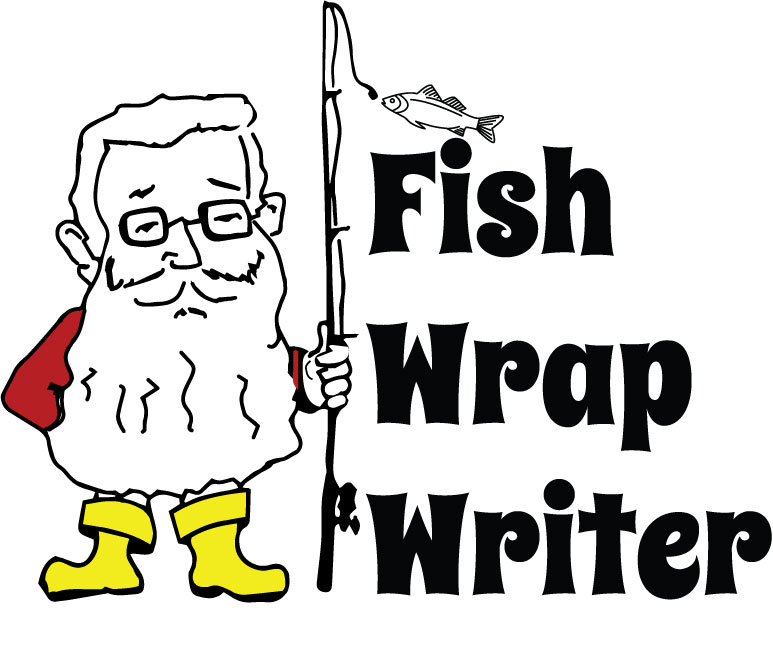
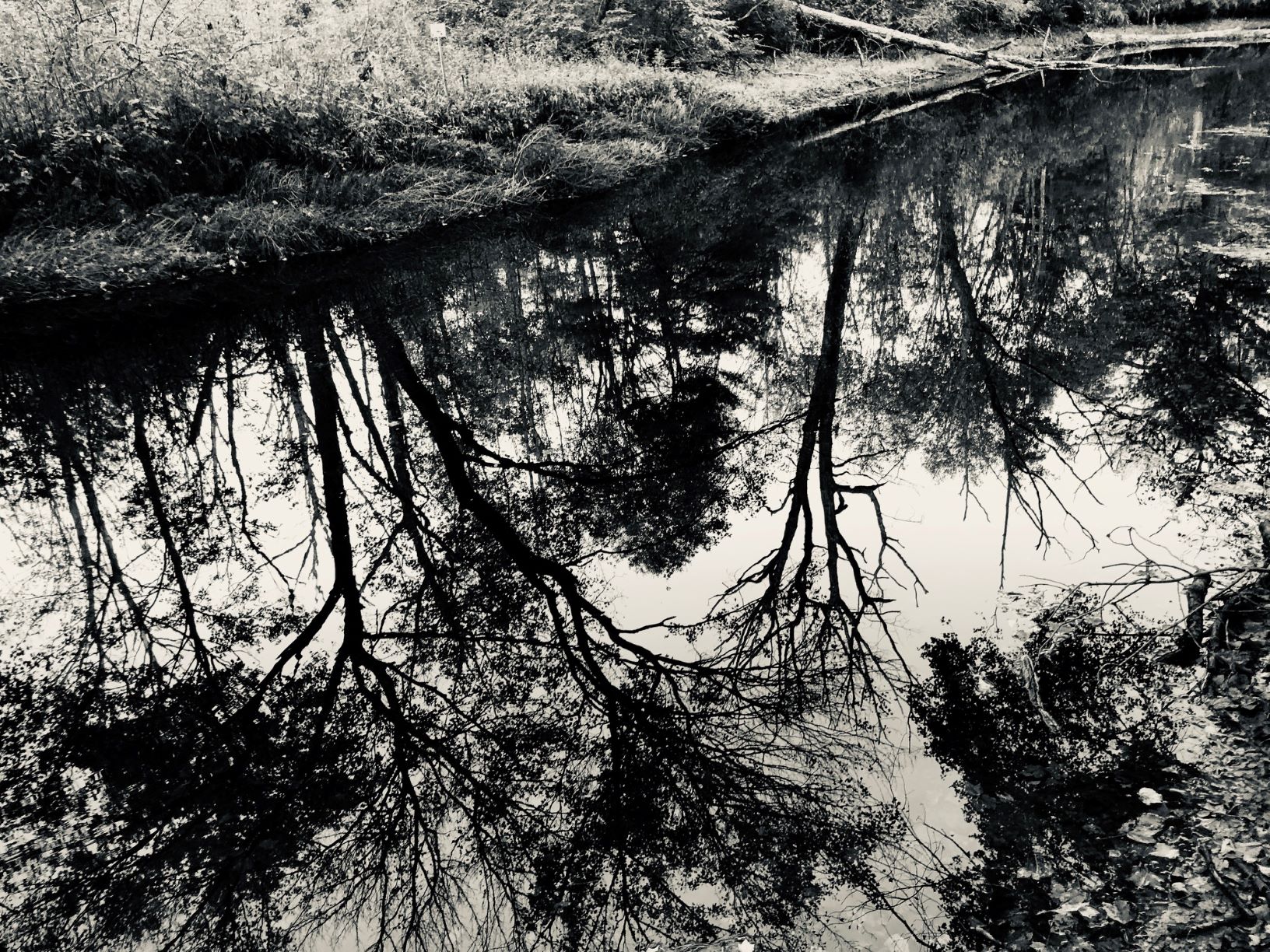
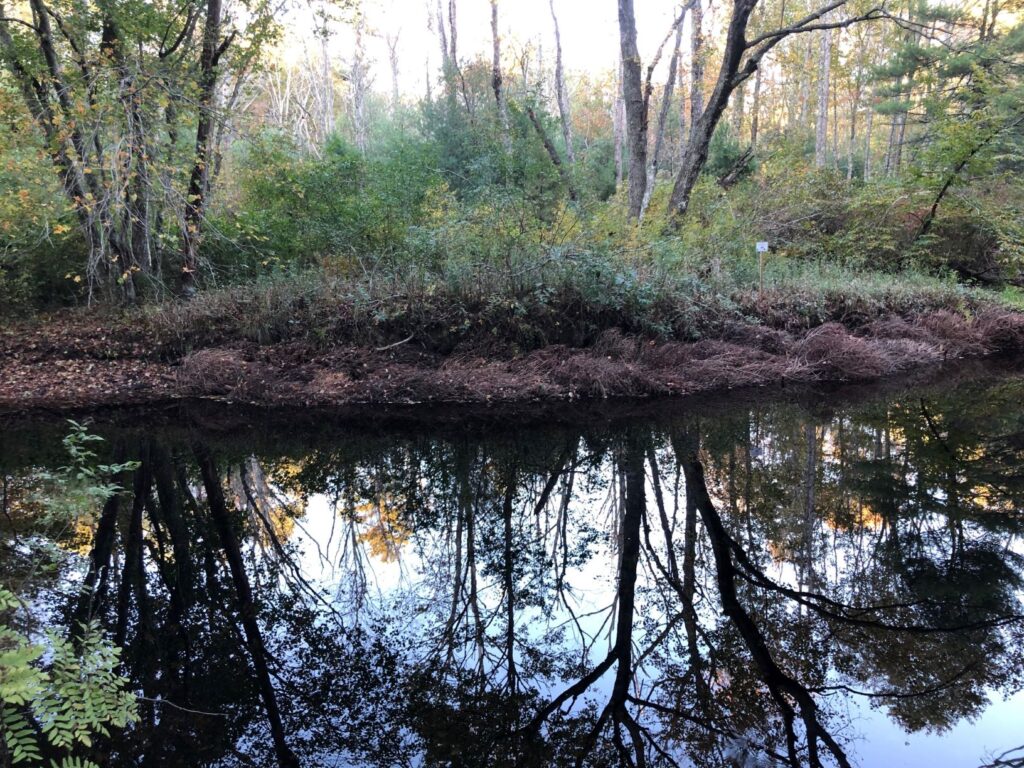
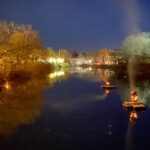
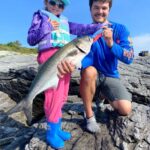
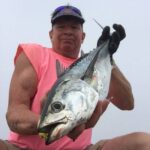

Nice article Todd.
Thank you sir, and cheers to Trout Unlimited for all their hard work.
Great article, Fish Wrap!
Thank you, thank you, thank you!